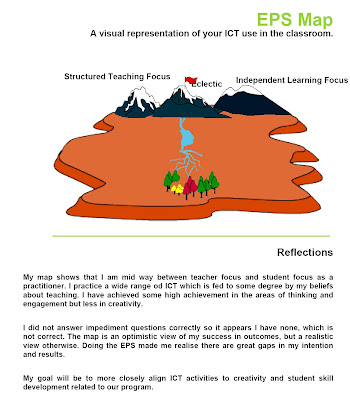
Well, the K12 Online Conference has finished for another year, and I didn't get very involved for all the usual reasons/excuses. But all is not lost if you have the slightest clue how to use iTunes - yes, it is on your computer so just open it. Then go to the store and search for k12online07. This will take you straight to the download page for both audio and video podcasts from the conference. I recommend subscribing to both if you use an mp3 player as you can sample the sessions that look promising via audio and later watch presentations which are of special interest.
The K12 Online 2007 Blog will provide you with information about each session. Browse the categories on the sidebar or search for what you are seeking. You can bypass iTunes by listening/viewing straight from the blog, and check out any related links.
My first recommendation is NZer Derek Wenmoth's keynote Holding a Mirror to Professional Practice. Derek is a teacher educator and gives a fine presentation about his research into the connection between teacher beliefs, intentions and professional practice in the use of ICT. They have some interesting programs going which are worth hearing about, but the absolute best thing is their EPS - Educational Positioning System. This is a free to use online tool which takes you through a series of reflections on your teaching practice with ICT.
The result is a map of various elements - beliefs about teaching, use of ICT, relative success in achieving outcomes and obstacles to practice. My map is below, along with my hastily written reflection. In fact I think my practice looks better in the map than it really is, but it was completing the EPS that alerted me to many of the flaws in what I was doing. These included fairly tenuous links between technology used and outcomes, and a sad lack of opportunity for students to really be creative (represented by those stunted yellow shrubs). I completely mucked up the questions about infrastructure impediments so have no rocky passages in my river of practice.
I learned a lot from this and will go back to it when I think I have worked on some of the issues. But do watch Derek's presentation. It is well done, moves along at pace and will explain much better than I have about the EPS.






